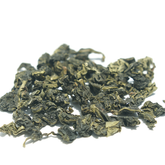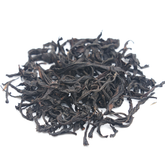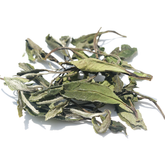How Long to Steep Green Tea? Avoid Bitterness with These Timings
Green tea is a type of unfermented tea known for its fresh aroma and smooth, crisp taste. It has been enjoyed in China for thousands of years, with its main origins in provinces like Zhejiang, Anhui, and Jiangsu. The earliest green tea processing methods date back to the Tang Dynasty, when people steamed tea leaves to keep their vibrant green color. Many beginners find that their green tea turns out bitter or too astringent. This often happens because of incorrect brewing techniques. In this blog post, we’ll show you the right way to brew green tea for a smoother, more enjoyable taste.
Many beginners find that their green tea turns out bitter or too astringent. This often happens because of incorrect brewing techniques. In this blog post, we’ll show you the right way to brew green tea for a smoother, more enjoyable taste.
How to Brew Green Tea Correctly
Choosing the Right Teaware for Brewing Green Tea
Green tea has a fresh and delicate flavor, and choosing the right teaware helps bring out its best taste. The most recommended option is a glass cup. Glass doesn’t absorb flavors, allowing you to fully appreciate the tea’s color, leaf shape, and liquor clarity. When brewing in a glass cup, you can watch the tea leaves unfurl and float up and down—a process known as the "tea dance," which adds to the enjoyment. Additionally, glass prevents over-steeping, which can make green tea taste bitter. Avoid using a Yixing clay teapot for green tea. Yixing clay is highly porous and absorbs flavors, meaning it retains the aroma of previous teas and may alter the fresh taste of green tea. Moreover, clay teapots retain heat well, which can cause the tea to overbrew and become bitter. Thermal mugs are also unsuitable, as their sealed environment keeps the tea steeping at high temperatures for too long. This leads to a darker, more bitter brew, ruining green tea’s refreshing nature.
Avoid using a Yixing clay teapot for green tea. Yixing clay is highly porous and absorbs flavors, meaning it retains the aroma of previous teas and may alter the fresh taste of green tea. Moreover, clay teapots retain heat well, which can cause the tea to overbrew and become bitter. Thermal mugs are also unsuitable, as their sealed environment keeps the tea steeping at high temperatures for too long. This leads to a darker, more bitter brew, ruining green tea’s refreshing nature.
Choosing the Right Amount of Tea Leaves
For glass cup brewing, a common recommendation is 2g of tea leaves per 200ml of water. However, this is not a strict rule—you can adjust according to personal taste. The amount of tea used directly affects the tea’s strength and flavor. Using too much tea results in an overly strong, bitter brew, while too little may make the tea taste weak and bland. The key is to find the right balance. If the tea is too weak, it won’t release enough aroma, but adding too many leaves will almost certainly make the tea unpleasantly bitter.
The Right Water Temperature for Green Tea
Green tea is best brewed at a water temperature of 80-85°C (175-185°F). If the water is too hot, such as close to 100°C (212°F), the tea polyphenols and amino acids break down too quickly, making the tea taste bitter and giving it a darker color. On the other hand, if the water is too cool (below 70°C/160°F), the tea’s flavors won’t fully extract, resulting in a weak and dull brew.
Using boiling water on green tea is like "overcooking vegetables"—it makes the leaves turn yellow and the flavor overly harsh. (Lab data suggests that tea brewed at 100°C is three times more bitter than tea brewed at the right temperature.) To ensure the right temperature, let the water sit for about 2 minutes after boiling before using it.
How long to steep green tea?
The steeping time plays a major role in the taste of green tea. If steeped too long, the tea becomes bitter and astringent; if too short, it may lack depth. The best steeping time depends on the teaware used:
Glass cup method: The first steep is best at around 1 minute. Since the tea leaves remain in the cup, you can add more hot water halfway through to prevent bitterness. Gaiwan (lidded bowl) method: Steeping time should be strictly controlled. The first steep should be about 20 seconds, then increase each subsequent steep by 10 seconds. Be sure to fully pour out all the tea liquor after each infusion—if water remains in the gaiwan, it will continue steeping the leaves and cause bitterness in later brews.
Gaiwan (lidded bowl) method: Steeping time should be strictly controlled. The first steep should be about 20 seconds, then increase each subsequent steep by 10 seconds. Be sure to fully pour out all the tea liquor after each infusion—if water remains in the gaiwan, it will continue steeping the leaves and cause bitterness in later brews.
Green Tea Brewing Method Summary
| Category | Glass Cup Brewing (No Separation) | Gaiwan Brewing (Tea Separation) |
|---|---|---|
| Best For | Quick, everyday use (office, home) | Tea tasting, guests |
| Tea Amount | 2g:200ml (thin layer at cup bottom) | 4g:120ml (1/5 of gaiwan’s capacity) |
| Water Temp | 80-85°C | 80-85°C |
| Key Steps | 1. Pour 1/3 water first, wait 20s, then fill. 2. Total time ≤2 mins |
1. Pour water → steep 20s → pour out. 2. Add 10s per steep |
| Steeping Time | Finish within 2 mins; halve time when refilling | 20s → 30s → 40s → 50s → 60s |
| Tips | Refill when half-drunk to avoid bitterness | Drain fully each time; open lid to cool |
Frequently Asked Questions
1.Does green tea have caffeine?
Yes, green tea contains caffeine since it is made from tea leaves.
2.Is matcha green tea?
Matcha is made from green tea leaves; it belongs to the green tea category but differs in form from most common loose green teas.
3.How long to steep green tea?
It is recommended not to steep for more than 1 minute to avoid bitterness. Adjust the steeping time based on the tea-to-water ratio; if you have less tea, you may need to steep longer, or the tea will taste too weak.
4.Does green tea stain your teeth?
Drinking tea can cause some staining, but maintaining a good dental hygiene routine can mitigate this issue.
5.Does green tea expire?
Yes, green tea can expire easily. Since it is lightly oxidized, it should be stored in a sealed container in the refrigerator and consumed quickly for the best flavor experience.
6.Does green or black tea have more caffeine?
Generally, the more oxidized the tea, the more caffeine it releases. Thus, black tea tends to have more caffeine than green or white tea.
SEE MORE
If you have questions about selecting tea:
Learn-more-about-chinese-tea
If you have questions about the benefits of tea:
Health-benefits-of-chinese-tea
If you have questions about brewing tea:
How-to-brew-loose-leaf-tea






